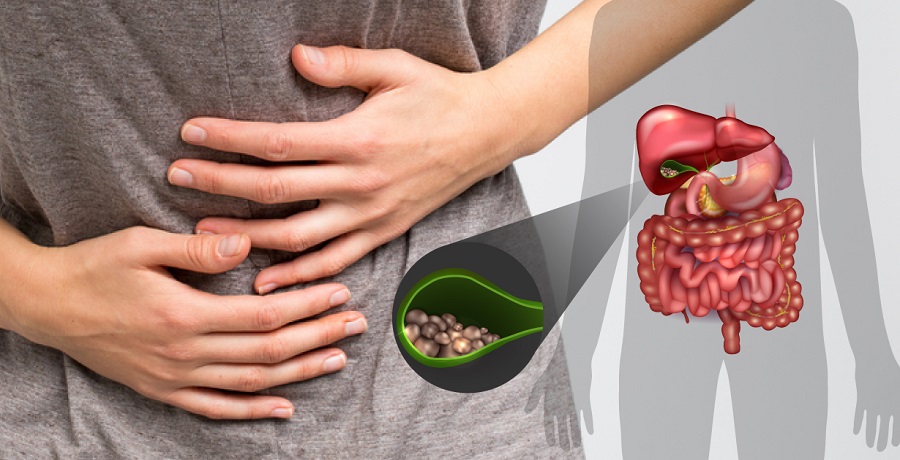The Importance of Gallbladder Stones Treatment and Some Lesser-Known Facts
Gallstones or Gallbladder stones form when the bile contains excess cholesterol and other substances. Bile is a fluid-like substance produced by the liver and stored in the gallbladder. Stones form when the bile thickens and begins to solidify. These stones can be small as a grain or as large as a small stone. It is frequently a cluster of small stones or a single large stone.
Why do Gallbladder Stones Develop?
Gallstones form in the gallbladder due to the accumulation of bile salts. The gallbladder is a sac-like reservoir located under the liver and next to the pancreas. Gallstones develop because of a diet that has too much cholesterol and too little fiber and hormonal changes that may occur during menopause or pregnancy.
They can obstruct the flow of bile to the intestines. Gallbladder stone treatment is therefore necessary.
What are the Signs and Symptoms of Gallbladder Stones?
Many signs and symptoms may indicate that you have gallstones. The most common and recurring symptom is intense and excruciating pain that can last for a few minutes to several hours. There are other symptoms that can be related to the gall bladder. The most common symptoms are listed below.
– Recurrent pain in your upper right abdomen
– Pain in the area between the shoulder blades
– Intense pain in the abdomen just beneath the breastbone
– Extreme pain in the right shoulder
-Chills and fever in some cases
– Nausea and vomiting
– Jaundice
Who is at Risk of Developing Chronic Gallbladder Disease or Gallstones?
There could be many reasons or risk factors why some people develop stones in their gallbladder, such as:
- One risk factor for developing chronic gallbladder disease or gallstones is having a family history of gallbladder stones.
- Another risk factor is having an infection like Helicobacter pylori. This infection can cause inflammation in the stomach, and this inflammation can transfer to the liver and create problems with how it handles fats.
- Another reason is the person being overweight.
- People over 40 years of age are also at risk of developing stones.
- Women are more at risk and prone to developing them.
- Diabetic people and high cholesterol can also be another cause.
- Anyone with a blood disorder and on oral contraceptives can also develop these stones.
Why is it Important to Get Gallbladder Stone Treatment?
People who consume processed and fatty foods are more likely to have gallbladder stones. However, if there is no pain, you will not require surgery to remove the stone. People are frequently unaware that they have bladder stones and, as a result, do not require treatment due to a lack of symptoms.
Only 10% to 20% of people experience any kind of symptom, which is typically abdominal pain. When severe pain or any of the other above-mentioned symptoms occur, it is best to get a CT scan or an ultrasound done to detect the presence of stones.
The occurrence of pain is known as a “gallbladder attack,” and it necessitates immediate and effective treatment. Some people may only have one gallbladder attack and then experience remission. People usually dismiss such attacks, categorizing them as a one-time occurrence or a symptom of another problem. However, the likelihood of such attacks recurring in the future is high.
When symptoms appear, it is advisable and critical to have the gallbladder stone treatment done by getting them removed because they can lead to complications later. In such cases, the size of the stone is unimportant. Furthermore, the sooner you have the stone removed, the faster and easier your recovery will be.
How is Gallbladder Stone Treatment Typically Conducted?
There are few treatment options for gallstones, with surgery being the dominant method. The two main types of gallbladder surgeries are ‘open surgery’ and ‘laparoscopic surgery.’
Open surgery is a type of operation that can be done through a small incision in the abdomen. The surgeon will go through this incision to remove the gallbladder and take out any stones formed in it. This type of operation is more invasive than laparoscopic surgery because it requires cutting through some organs.
The risk of complications like infection or leakage is also higher in this type of surgery. However, it is more effective than laparoscopic surgery for removing stones from or near the ducts that connect with bile ducts where they cannot be removed by other means.
Laparoscopic surgery is a negligibly invasive procedure. It is done by making small incisions in the abdomen. The surgeon inserts a thin tube (a laparoscope) and other surgical tools through these small incisions. They can make these incisions with precision and less scarring, which helps in making the patient feel better and recover faster.
Conclusion
Gallbladder stones are not fatal, but they can cause complications if they are not properly diagnosed and treated. People at risk should exercise extreme caution and take the symptoms seriously.
Shikha Dhawan

